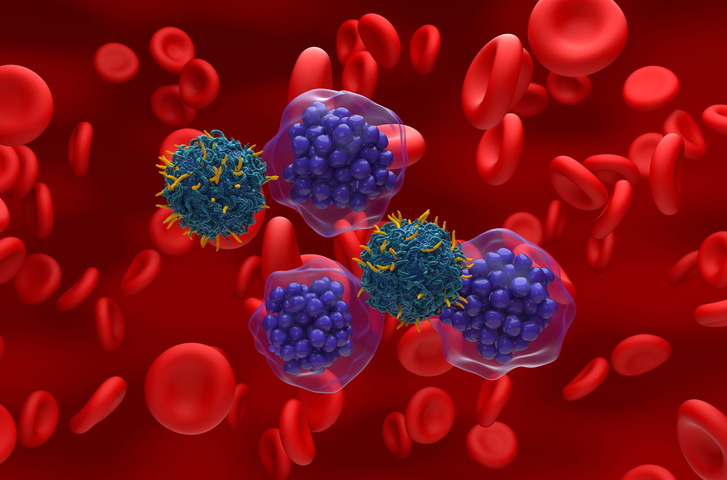
Long-term safety data for luspatercept showed no new safety signals and demonstrated long-term clinical efficacy in patients with lower-risk risk myelodysplastic syndromes (MDS), according to the phase II PACE-MDS study.
The multicenter study, led by Uwe Platzbecker, MD, of the University Hospital Carl Gustav Carus in Dresden, Germany, evaluated luspatercept for anemia in patients with lower-risk MDS irrespective of ring sideroblasts (RS), transfusion burden, or prior erythropoiesis-stimulating agent exposure.
The primary end point of the study was safety. The median duration of luspatercept exposure was 315 days (range, 21-1,934 days), during which time no new safety signals emerged, confirming the overall safety of luspatercept exposure.
Rates of treatment-emergent adverse events for RS and non-RS patients were 48.4% (n=30/62) and 36.4% (n=16/44), respectively (P=.11). The most common treatment-emergent adverse events in RS patients were fatigue (9.7%) and hypertension and diarrhea (6.5% each); in non-RS patients, they were headache (11.4%) and hypertension and bone pain (6.8% each). One RS patient progressed to acute myeloid leukemia.
Secondary end points of the study included rates of hematologic improvement (HI) erythroid (HI-E), HI neutrophil, and HI platelet. HI-E was observed in 53.7% of patients, including 36.4% of non-RS and 70.6% of non-transfusion-dependent patients. HI neutrophil and HI platelet were observed in 33.3% and 9.5% of patients, respectively.
An almost three-fold increase in bone marrow late to early progenitor cell ratio accompanied HI-E response, irrespective of RS status. Lower baseline erythropoietin levels in non-RS patients (69.6 vs 623.3 IU/L; P=.0077) and higher late to early erythroid progenitor cell ratio (10.44 vs 4.48; P=.0106) in RS patients were associated with HI-E.
“Luspatercept demonstrated long-term clinical efficacy and safety comparable with previous reports in patients with [lower-risk] MDS irrespective of subtype, particularly in untreated patients,” the investigators concluded.
This study was funded by Acceleron Pharma in collaboration with Bristol Myers Squibb.
Reference
Platzbecker U, Götze KS, Kiewe P, et al. Long-term efficacy and safety of luspatercept for anemia treatment in patients with lower-risk myelodysplastic syndromes: the phase II PACE-MDS study. J Clin Oncol. 2022;40(33):3800-3807.






 © 2025 Mashup Media, LLC, a Formedics Property. All Rights Reserved.
© 2025 Mashup Media, LLC, a Formedics Property. All Rights Reserved.